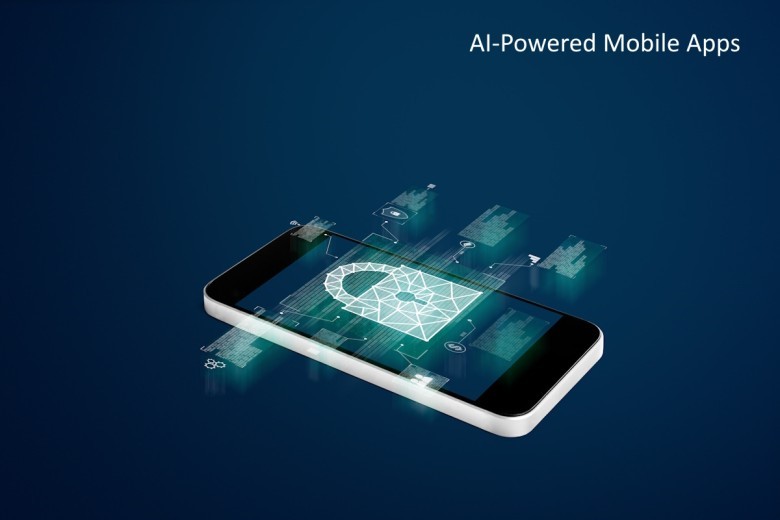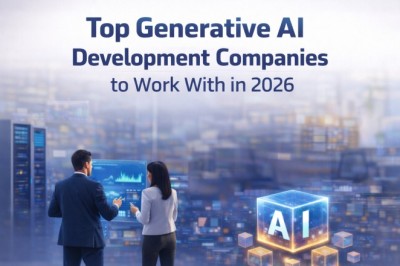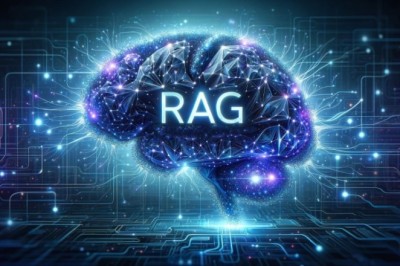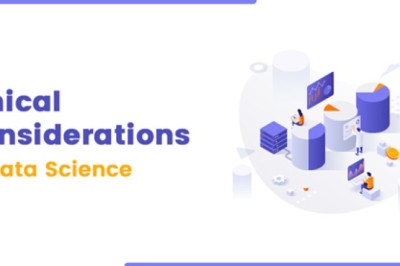views

Artificial intelligence (AI) is changing how mobile apps function. Whether it’s voice recognition, predictive analytics, or personalized recommendations, AI is making apps more efficient and user-friendly.
Many businesses are eager to integrate AI into their apps, but not all understand its capabilities and limitations. AI isn’t a cure-all—it enhances certain processes but cannot replace human intuition, creativity, or ethical reasoning.
If you’re exploring AI mobile app development, understanding what AI can and can’t do will help you make informed decisions.
Let’s explore its potential and limitations.
What AI Can Do for Your Mobile App
AI improves app functionality by automating repetitive tasks, personalizing user experiences, and enhancing security. Below are some of the key areas where AI delivers value.
1. Personalization and User Experience
AI analyzes user behavior and preferences to provide customized experiences. This includes:
- Content recommendations – Apps like Netflix, YouTube, and Spotify use AI to suggest shows, videos, and music based on previous interactions.
- E-commerce personalization – Amazon and Shopify recommend products tailored to user interests, increasing conversions.
- Dynamic app interfaces – AI can adapt app layouts and content in real time, depending on user behavior.
By learning from user interactions, AI ensures that each person receives a personalized experience, improving engagement and retention.
2. Chatbots and Virtual Assistants
AI-driven chatbots and virtual assistants provide instant customer support. They:
- Answer frequently asked questions
- Handle appointment bookings and order tracking
- Assist with troubleshooting and technical support
Apps like Facebook Messenger, WhatsApp, and banking apps integrate chatbots to handle queries, reducing response time and improving customer service. Virtual assistants like Siri and Google Assistant help users complete tasks hands-free.
3. Process Automation and Optimization
AI automates complex and repetitive tasks, saving time and resources. Examples include:
- Healthcare apps analyzing medical records for early disease detection
- Finance apps monitoring transactions for fraud detection
- Travel apps optimizing routes for ride-sharing and logistics
By handling tedious tasks, AI reduces human workload and increases efficiency.
4. Predictive Analytics and Decision-Making
AI can analyze large amounts of data to predict trends and user behavior.
- Retail apps forecast inventory demand based on sales trends.
- Weather apps use AI to predict future weather conditions with greater accuracy.
- Fitness apps recommend personalized workout plans based on user activity.
Predictive analytics help businesses make data-driven decisions, reducing risks and improving efficiency.
5. Voice and Image Recognition
Voice assistants and facial recognition are key AI-driven features in mobile apps.
- Google Assistant and Alexa enable hands-free navigation and voice commands.
- Google Lens allows users to scan objects and get relevant search results.
- Face ID and fingerprint scanners enhance app security and authentication.
AI-powered speech and image recognition improve accessibility and security in mobile applications.
6. Fraud Detection and Cybersecurity
AI helps detect fraud and security threats in real time.
- Banking apps flag unusual transactions and prevent unauthorized access.
- E-commerce apps identify fraudulent activities, such as fake reviews and payment fraud.
- Cybersecurity tools use AI to detect and block malware or phishing attempts.
By monitoring user activity and patterns, AI strengthens security in mobile apps.
7. Automated Content Generation and Language Translation
AI can assist in content creation and real-time translation.
- AI-generated captions and social media posts help automate content marketing.
- Google Translate and DeepL provide instant language translations for global communication.
- Speech-to-text features convert voice inputs into text, improving accessibility.
These capabilities enable apps to reach wider audiences and improve communication efficiency.
What AI Can’t Do for Your Mobile App
Despite its advantages, AI has limitations. It cannot replace human intuition, creativity, or ethical decision-making. Below are key areas where AI falls short.
1. Lack of Human Creativity and Emotional Intelligence
AI can analyze data and generate content, but it lacks creativity and emotional intelligence.
- It cannot create original ideas – AI can write articles or generate images, but it cannot think like a human. Content created by AI often lacks depth and authenticity.
- It does not understand human emotions – AI chatbots may struggle with sarcasm, empathy, and complex emotional interactions.
This is why creative industries, such as marketing and entertainment, still rely on human input for storytelling and branding.
2. Inability to Make Ethical or Complex Decisions
AI makes decisions based on data, but it does not have ethical reasoning.
- Bias in AI models – If trained on biased data, AI can produce discriminatory outcomes.
- Lack of moral judgment – AI cannot determine right from wrong in ethical dilemmas.
- Legal and compliance risks – AI decisions in banking, healthcare, or legal fields require human oversight to prevent legal issues.
Human intervention is essential to ensure AI-driven decisions are fair and responsible.
3. High Development and Maintenance Costs
AI-powered apps require continuous training, updates, and maintenance.
- Data collection and processing require expensive infrastructure.
- AI models need regular updates to stay relevant.
- Small businesses may struggle to afford AI integration.
For startups or businesses with limited budgets, the cost of AI implementation may outweigh its benefits.
4. Dependency on High-Quality Data
AI relies on large datasets to function effectively.
- Poor data quality leads to inaccurate AI predictions.
- AI models require constant updates with fresh data.
- Data collection can be time-consuming and expensive.
If an app does not have access to sufficient high-quality data, its AI features may not perform well.
5. Limited Ability to Handle Unpredictable Situations
AI works well with structured data but struggles with unexpected scenarios.
- Chatbots may fail when users ask complex or vague questions.
- Self-driving AI cannot always predict unpredictable human behavior.
- AI in customer service may misinterpret user requests.
AI requires human supervision to handle situations beyond its programmed capabilities.
6. Privacy and Security Risks
AI-powered apps collect vast amounts of personal data, raising security concerns.
- Data breaches can expose sensitive user information.
- AI-powered apps must comply with data privacy laws (GDPR, CCPA).
- Users may feel uncomfortable with AI tracking their behavior.
Businesses must implement strict data security measures to maintain user trust.
7. AI Is Not Truly Autonomous
Despite its advancements, AI still requires human intervention.
- AI tools need manual training and fine-tuning.
- AI cannot function without predefined data inputs.
- AI cannot replace human judgment in critical decision-making.
AI should be seen as a tool that enhances human capabilities rather than a replacement for human intelligence.
Finding the Right Balance
AI mobile app development offers significant advantages, but it is not a one-size-fits-all solution.
Before integrating AI into your app, consider these questions:
- What specific problem will AI solve?
- Will AI improve user experience or business efficiency?
- Do you have the resources to maintain AI-driven features?
AI works best when used strategically. While it can automate tasks and improve efficiency, human oversight is crucial for ethical decision-making, creativity, and customer relationships.
By understanding what AI can and can’t do, businesses can make informed choices about leveraging AI in mobile apps effectively.
























Comments
0 comment